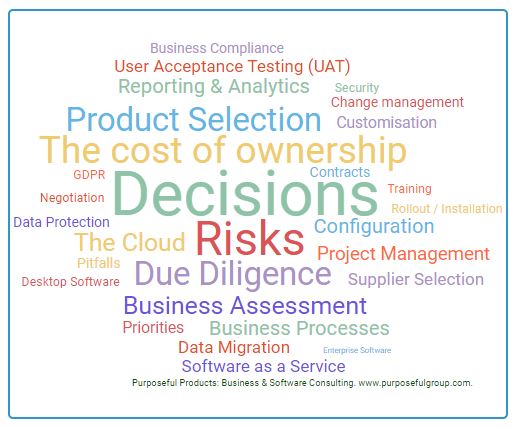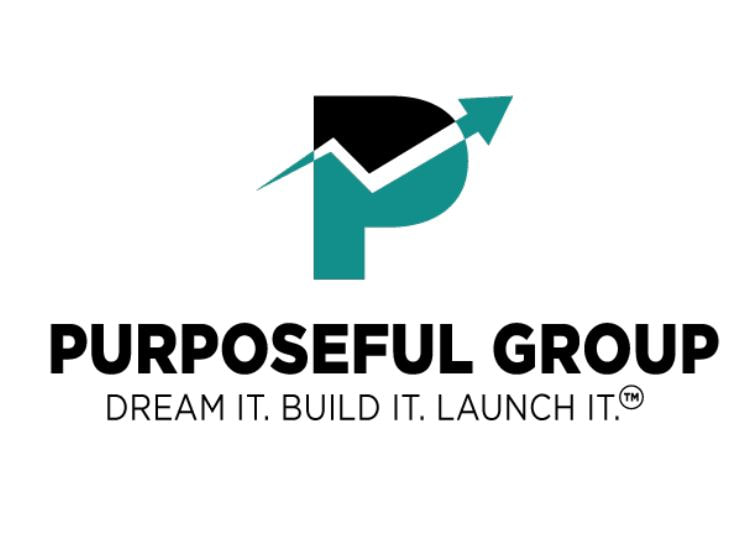|
If so, there can be a lot to consider.
It is common to see articles, blog posts and the like, which immediately launch into comparisons between different types of software. I believe this is a mistake which can mislead businesses. Although these comparisons are useful, initially, try to take a step back from this sort of information, and first look inwards, before looking outwards. Your starting position should always be your specific characteristics, and requirements as a business, or department. From this point, with a clear picture of what you need and why, you are simply following a process of elimination, based on your business drivers and commercial needs. Following this approach is far more likely to lead to a positive result. Assuming that you've assessed the specific needs of your business, and the activities that you would like the software to perform for you, let’s take a look at 4 questions that you can ask yourself when thinking about purchasing software: 1. Do you wish to be able to “own” or adapt your software? Do you want the freedom to use the software “for life,” potentially holding it for as long as 3-10+ years? Is it important to have the scope to adapt it now, or in the future, or to be able to connect (i.e. integrate) it with other systems? If you wish to extend, or flex a product to meet your needs, this is less likely to be possible with “rented” SaaS products, (although moving up to a higher pricing tier may allow you to access a wider range of options.) On the other hand, "ownership" (via a license that allows you more flexibility to modify the software, or the ability to hold it for a longer period) may not be the best option if:
2. How urgently do you require the software? If a short sales cycle is needed, consider that for larger and more complex software systems, it can take weeks (or even many months) to:
3. Is convenience, or control most important?
However, if you are less concerned about these items, then SaaS products are generally more convenient, with fewer set-up tasks required. 4. Do you seek highly-specialised functionality? How niche are your requirements? If you are unable to find functionality that meets your needs on the open market, or you have masterminded a process, or technique that you want your software systems to reflect, you may wish to consider software that can be altered by a software provider, or decide to have a product built in-house, or by a 3rd party. (In the next chapter, we’ll cover some key points to review if you are thinking of having software built, including options that could expedite the build of your product.) Copyright 2017 © K.N. Kukoyi. Purposeful Products. This content was taken from the software buyer's survival guide: Don't Buy Software For Your Small Business Until You Read This Book: A guide to choosing the right software for your SME & achieving a rapid return on your investment. Now available on Amazon and featured on Kindle best-seller lists in Australia, Canada, France, the UK and US: bit.ly/SME-guide Print versions of the book will be available from 18th June 2017. You can access a free Business Requirements Assessment document in Word and Excel formats (1 of the 7 free resources provided to readers of the book) here: http://bit.ly/resource1-assessment
0 Comments
|
WHAT INFORMATION WILL YOU FIND on THE PURPOSEFUL GROUP BLOG?Want to build a mobile, or web app to offer to your existing customers? Archives
February 2024
CategoriesAll # Building Software Applications Business Life / Managing A Business Buying Software For Your Business Entrepreneur Interviews Series 1 Entrepreneur Interviews Series 2 Funding Marketing Mindset Productivity Automation Business Tips Productivity-automation-business-tips Productivity Process Automation & Business Tips Research & Publications Startup And Small Business Support Technology Techpreneur Interviews Vision Strategy & Planning X |
|
Address:
5-7 Buck Street, Camden, London, NW1 8NJ Copyright © 2024. Purposeful Group®. All Rights Reserved.
|
Email: courses[at]purposefulgroup.com
Telephone: UK: 0203 974 2225 |


 RSS Feed
RSS Feed